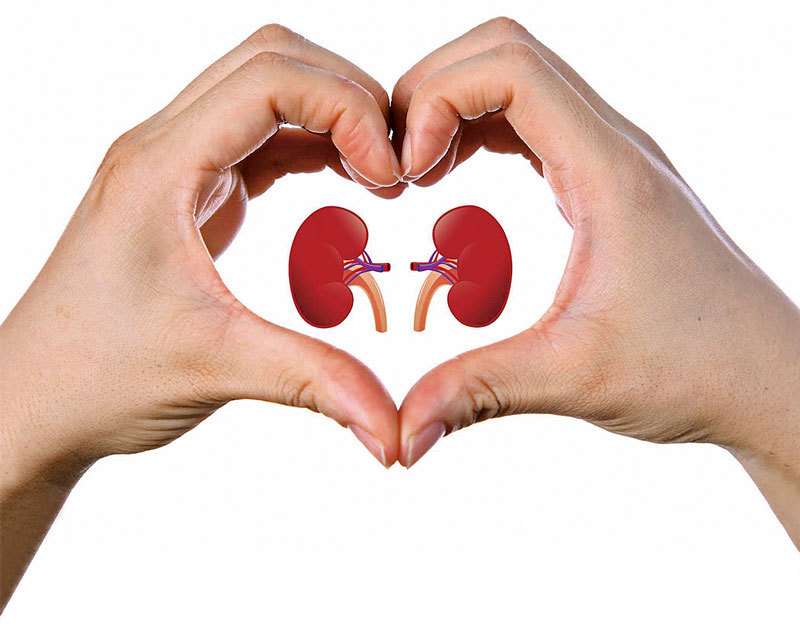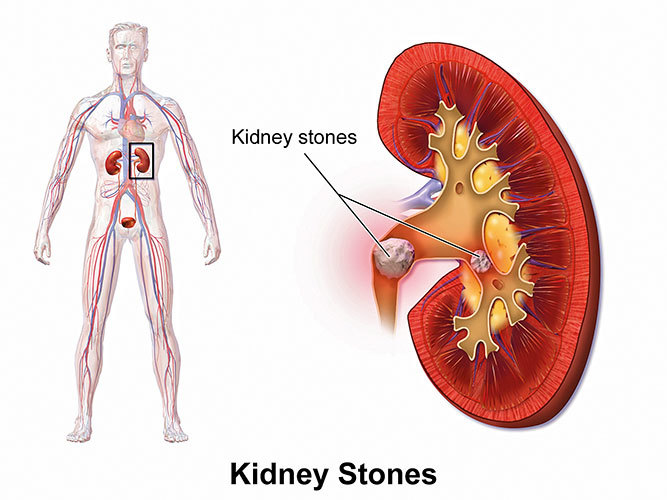World Kidney Day falls on every second Thursday in March. It’s a globally recognised day to raise awareness about the vital roles of our kidneys and to reduce the frequency and impact of kidney disease. In line with this campaign, we have summed up several important points you need to know about the organ and why it’s important to encourage preventive behaviours.

Kidneys Functions
According to www.kidney.org, kidneys are responsible for removing waste products and drugs from the body, balancing the bodily fluids, releasing hormones that regulate blood pressure, producing an active form of Vitamin D that promotes strong and healthy bones, and for controlling the production of red blood cells. If they fail to do those tasks, waste and other toxics would build up inside, slowly and painfully destroying our body. Your health will gradually degrade, and at the extreme, the condition can lead to a greater risk of death.
Kidney Diseases
Kidney stones
Based on the information published on www.mayoclinic.org, kidney stones are made of hard mineral deposits and acid salts formed inside the kidneys due to various causes such as dehydration, obesity, diet high in protein, sodium and sugar. Once you develop kidney stones, you are very likely to develop them again. Certain genetic factors may also increase your risk of uric acid stones.
Despite its small size, roughly five milimetres or more, you definitely cannot ignore the pain it causes every time you urinate. Other symptoms include severe pain in the side and back below the ribs, pain that comes in waves and fluctuates in intensity, persistent need to urinate, cloudy or foul-smelling urine, pink, red or brown urine.
Depending on your situation, the doctor may prescribe pain medication or recommend preventive treatment. At any rate, it’s highly recommended to drink lots of water to pass a kidney stone. If, for example, the stones become too large and have blocked your urinary tract or cause complications, surgery may be recommended.

Chronic Kidney Disease (CKD)
The kidneys lose their functions gradually leading to the dangerously increased level of wastes, electrolytes and fluid in the body. Several factors may contribute to this condition, such as diabetes type I or II, high blood pressure, cardiovascular disease, smoking, obesity, abnormal kidney structure, old age and family history of kidney disease.
Common symptoms include nausea and vomiting, swollen feet and ankles, muscle twitches and cramps, changes in the volume of the urine and short breath.
So far, dialysis and kidney transplant are the only ways to cure CKD. There are two types of dialysis: hemodialysis, which uses a machine to filter waste and excess fluids from one’s body, and peritoneal dialysis which inserts a thin tube or catheter into the abdomen in order to fill the abdominal cavity with a dialysis solution that can absorb the waste and excess fluids.
Kidney transplant is a surgical procedure to place a healthy kidney from a live or deceased donor into a person whose kidneys no longer function properly. Although it’s possible to partially replicate the functions of a kidney using dialysis, the procedure can be inconvenient and time-consuming, so a kidney transplant is the treatment of choice for kidney failure whenever possible.
Kidney failure
Kidney failure is a condition that occurs when your kidneys lose the ability to filter waste from your body sufficiently. Your body becomes overloaded with toxins if your kidneys can’t do their regular job. This can lead to kidney failure and even be life-threatening if left untreated.
Many factors can interfere with your kidney health and function, such as toxic exposure to environmental pollutants, certain acute and chronic diseases, severe dehydration and kidney trauma.
Many kidney or urinary tract conditions lead to kidney failure when they’re not managed properly. Generally, people who are most at risk for kidney failure usually suffer from loss of blood blow to the kidneys, urine elimination problems or other causes, such as a blood clot in or around the kidneys, infection, overload of toxins from heavy metals or drugs and alcohol. Symptoms include short breath, nausea, chest pain, excessive drowsiness or fatigue, swollen legs, ankles or feet due to fluid retention, decreased urine, seizures or even coma in severe cases.
There are several treatments for kidney failure, and the choice will rest upon the cause of your kidney failure. Your doctor can help you determine the best treatment option, which may include dialysis or kidney transplant.

Tips to keep your kidneys healthy:
- Stay hydrated. Researchers suggest our body needs between 1.5 to 2 litres of water per day, though the amount would depend on gender, climate and physical condition. If you’ve had history of kidney stones, increase the amount of your water intake to somewhere between two to three litres of water per day, to prevent the problem from recurring.
- Stop smoking. This bad habit slows the blood flow to kidneys and raises the risk of kidney cancer by 50 percent.
- Stay active. Running or cycling regularly helps decrease your blood pressure and thus lessens the risk of CKD.
- Keep away from pills unless necessary. According to www.worldkidneyday.org, over-the-counter drugs such as ibuprofen are known to cause kidney conditions if taken on a regular basis.
- Cut down on salt intake. Keep your salt consumption low, between 5 or 6 grams (roughly a teaspoon) per day.







